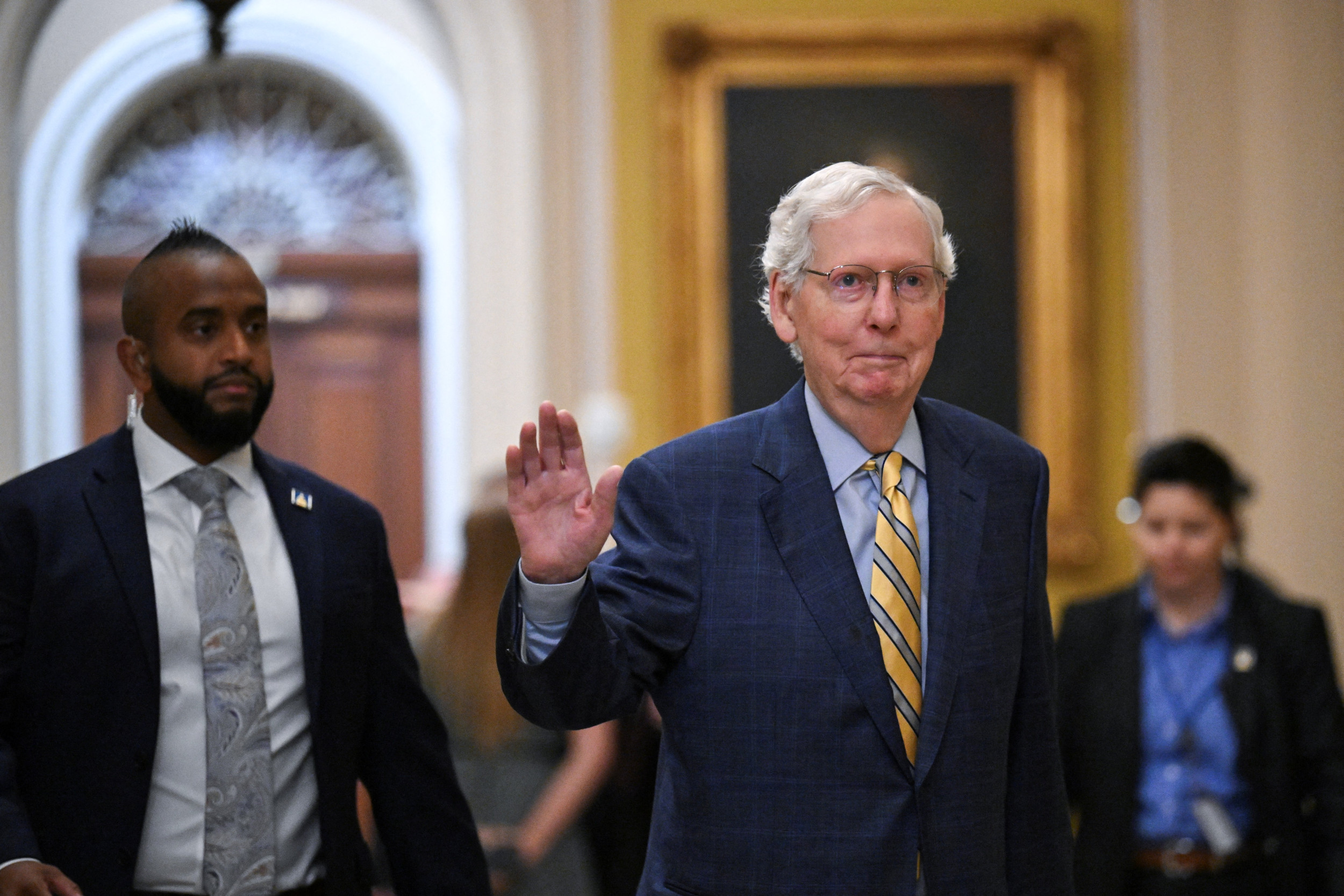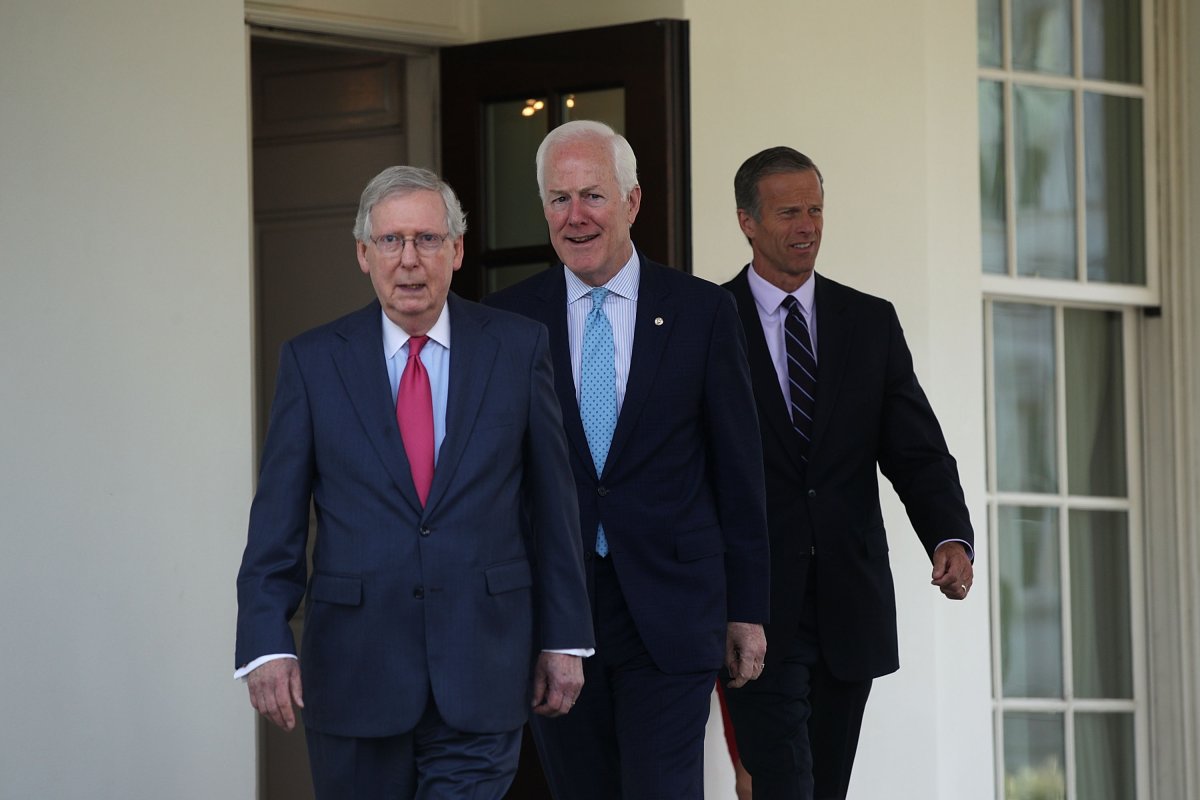
Senator Mitch McConnell, a Kentucky Republican, will be vacating his seat in January 2027 after nearly four decades, but it is his vacated role as the Republican Senate leader in November that will prove more vital for years to come.
Senator John Cornyn, a Texas Republican, and Senator John Thune, a South Dakota Republican, have emerged as the frontrunners to replace the outgoing McConnell as the Republican leader in the Senate—a post McConnell made his own through successes that helped reshape the Supreme Court, among other policy wins.
“Senate Republicans are blessed with a deep and talented bench, but Senator Thune sticks out as someone with the policy and political chops and widespread support inside the conference to get the job,” a former senior GOP Senate aide told Newsweek.
“Few will ever match Mitch McConnell on floor strategy and tactics, but Thune has had years to learn from the master,” the aide said.
McConnell, who has led his party in the Senate since 2007, is the longest-serving Senate leader in U.S. history. He served as Senate majority leader from 2015 until 2021, when Democrats took back control of the legislative body.
Drew Angerer/AFP via Getty Images
McConnell famously and controversially stalled out the confirmation vote on then-President Barack Obama‘s nomination of Merrick Garland, arguing that the “vacancy should not be filled until we have a new president.” Newly elected President Donald Trump then nominated Neil Gorsuch, who was confirmed within months.
When Supreme Court Justice Ruth Bader Ginsberg died just two months before the 2020 presidential election, McConnell ushered through the nomination and confirmation of Amy Coney Barrett in just over one month.
McConnell managed to whip up votes to support aid packages for Ukraine even as resistance to continued funding of the conflict grew within his own party.
McConnell clashed with Trump following the 2020 election. In private, McConnell called Trump “stupid” and “despicable,” according to a forthcoming biography about the senator; in public, he said that Trump was “practically and morally responsible for provoking” the Jan. 6 attack on the Capitol building.
Trump also bashed McConnell after his election loss, claiming the senator was “hanging by a thread.”
Ultimately, however, McConnell put his concerns aside and endorsed Trump in the 2024 election rather than stand against the former president as some high-profile Republicans have done throughout the cycle. McConnell had promised to support the Republican nominee “regardless of who it is” and that Trump “earned the nomination.”

Alex Wong/Getty Images
Political analysts who spoke to Newsweek remain largely unenthused by the choices of Cornyn and Thune, finding them “conventional” options, but are unable to name alternatives that could factor into the contest. Only Senator Rick Scott, a Florida Republican, gets a mention as a third option, but most did not focus on him as a serious contender.
Gregory Koger, a political scientist and professor of political science at the University of Miami, told Newsweek he could even see another, unnamed option appearing in November should Trump win the election.
“Both representatives are fairly conventional conservative options,” Koger explained. “If Donald Trump wins the presidential election, I would not be surprised to see him try to support a third candidate, or to extract a public pledge of personal loyalty from Cronyn and Thune.”
Koger said the election to replace McConnell would prove “critical to the future of the Senate as a legislative body.”
“The new leader can reconnect the Senate Republican party engagement in the legislative process, seeking to pass bipartisan legislation that is consistent with conservative principles in the national interest,” Koger said. “Or, Senate Republicans can continue to paralyze the chamber so that decision making power flows to the executive and judicial branches.”
Jason Cabel Roe, a political and communications strategist with more than three decades working in campaigns at all levels of government, called McConnell “one of kind” who “cannot be replaced” for his “mastery of the legislative process, his ability to navigate the byzantine culture of the Senate and his understanding of the caucus.”
Roe noted that Scott is a “surprisingly successful” politician who could factor into the race, but balanced it against the concern that Scott “isn’t really known for his legislative savvy.”
“John Thune and John Cornyn have decades of experience in the Senate and both much better prepared to lead what has become a more fractured caucus,” Roe said.
“I don’t see one being particularly better prepared than the other and I think it will come down to who the caucus thinks can effectively co-exist with a President Trump, if he wins, or who will be better prepared to stop a Harris agenda, if she wins,” Roe added.
